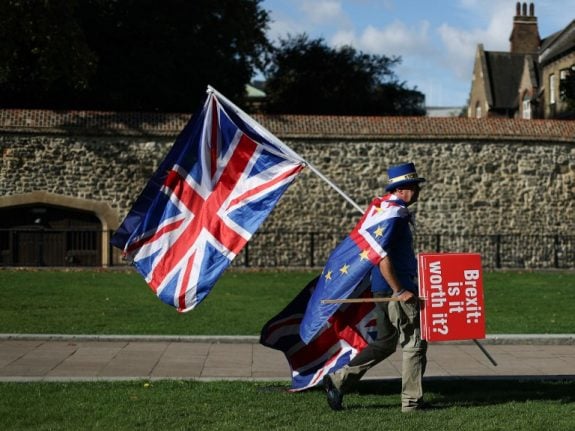- OPINION: Bashing the French for Britain's Brexit mess just won't wash
- Pet travel after Brexit: Brits living in EU urged to visit vets
- Brexit: Worried Brits lodge EU complaint against France for failure to hand out residency permits
 Photo: AFP
Photo: AFP
The European Union on Tuesday published further contingency plans for a "no-deal" Brexit, piling pressure Prime Minister Theresa May by warning that Britons will lose a host of travel rights from recognition of driving licences to lower credit card fees and no mobile roaming charges.

 Photo: AFP
Photo: AFP
…”.And Britons were warned about rising costs of paying for gods with bank cards.” i had no idea Britons were paying for gods with bank cards. How do I get one of those bank cards? I’ll pay the higher costs.
Before you give up the simplicity (and low cost!) of buying deities with cash…[“And Britons were warned about rising costs of paying for gods with bank cards…”], think about what happens when you can’t make your payments and the EU god-collectors come round.
Seriously, I just wonder how much of this is push-back on both sides. Talk about messy divorces! Nobody is thinking about the children!